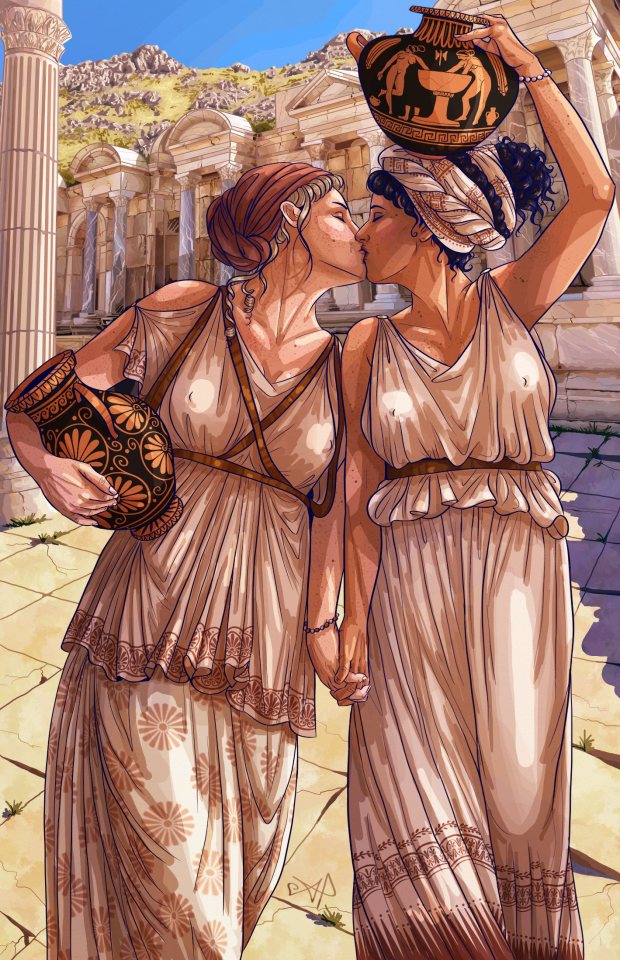Text
Greek Gods 101: Ares
Ares is a God of war, battlelust, civil order, courage, and strength. Excluding the universal offerings, some common offerings include:
Steak
Red Wine
Weights
Thorns
Helmet Figurines or Photos
Swords or Sword Depictions
Alcohol
Medals or Certificates
For devotional acts, some activities that can be done for him include:
Exercise
Standing Up for Yourself
Drinking
Learning About Military
Learning About Past Wars
Learning How to Settle Conflicts
Playing Strategy Games
He are celebrated in 2 Athenian holidays:
Artemis Agrotera/Kharisteria
Genesios, maybe
125 notes
·
View notes
Photo

Thargelia (θαργήλια) is an Athenian and Ionian festival celebrated in the city of Athens and on the isle of Delos on the 6th and 7th of month Thargelion, which corresponds with late May.
This year, Thargelia falls onto the 26th and 27th days of the month.
Traditionally thought to celebrate the birth of Artemis and Apollo Patroos, or, in some versions, venerate Helios and the Horae, this festival is a two-day long celebratory occasion focused on a cult sacrifice, rich offering, and devotional games given to the Gods in hopes of appeasing Them.

Thargelia, like many other celebrations of the Ancient times, is an agricultural festival. At the beginning of this celebration, Demeter was praised by the people, and the name of the festival itself, Thargelia, according to grammarians, translates into “fruits/grains of the earth”: Θαργήλια εισί πάντες οι από γης καρποί.
The specific harvest given attention to during this celebration was that of the first fruits of the earth, symbolically connected to the heat of the sun. Due to the connection between Demeter’s celebration and that of the Twins, it was customary to annually send an offering of fresh corn to Delos.
Keep reading
459 notes
·
View notes
Text
🔆 Drew Apollo for the first day of Thargelia 🔆
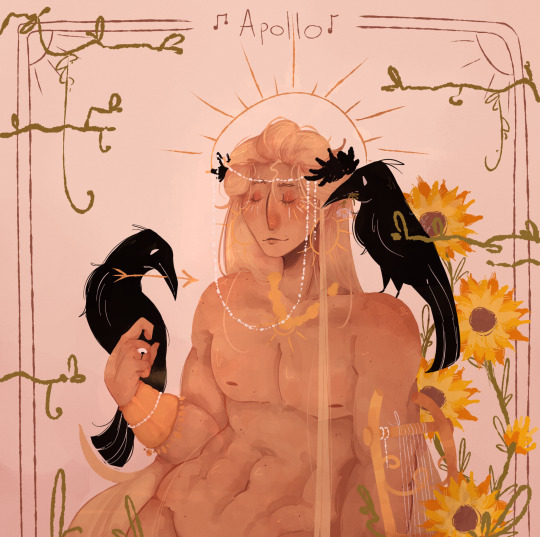
Blessed Thargelia to Lord Apollo and any devotees who celebrate :)
992 notes
·
View notes
Text
Hypnos's energy goes through His devotees.
When your friend sleeps upon your shoulder, that is Hypnos alongside you.
When your partner dreams of you, that is Hypnos with you.
When you wake up to your beloved pet laying on you or near you, that is Hypnos with you.
Hypnos is sleep, Hypnos is dreams
He is personification of concepts, divinity of these things, he is
You face Hypnos in the eyes when you close them with rest on your mind
376 notes
·
View notes
Text
I am a proud Devotee of Ares. Thank you for putting this into words.
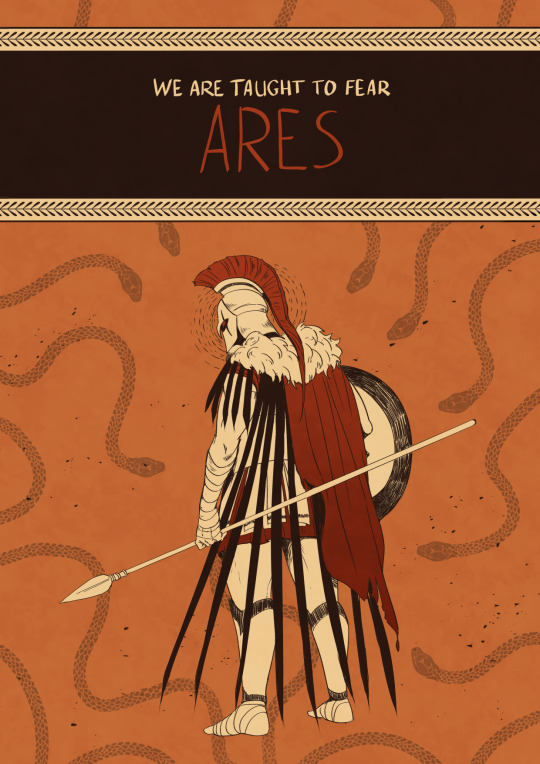


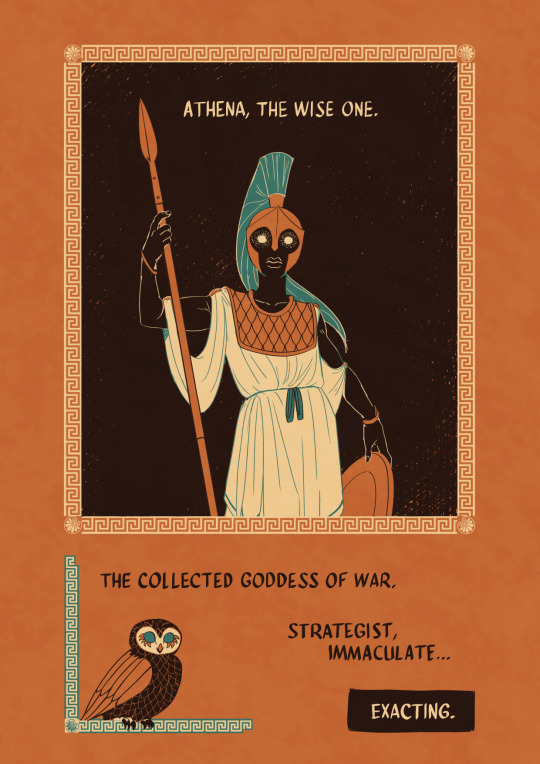

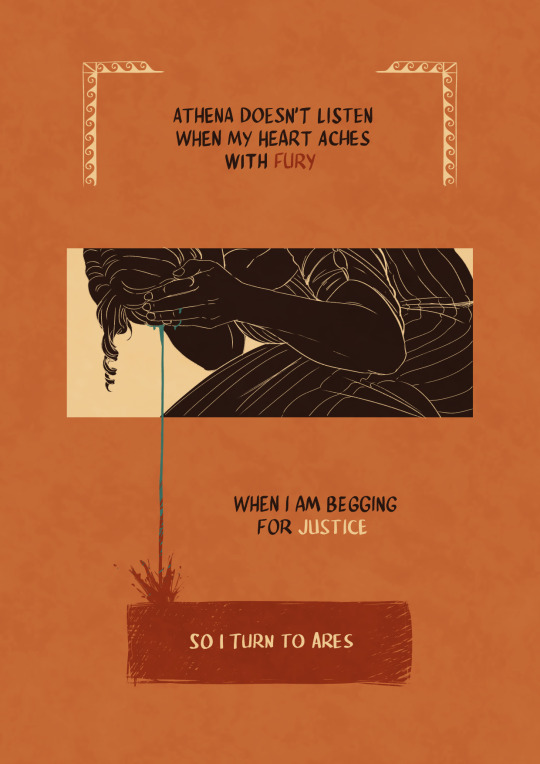


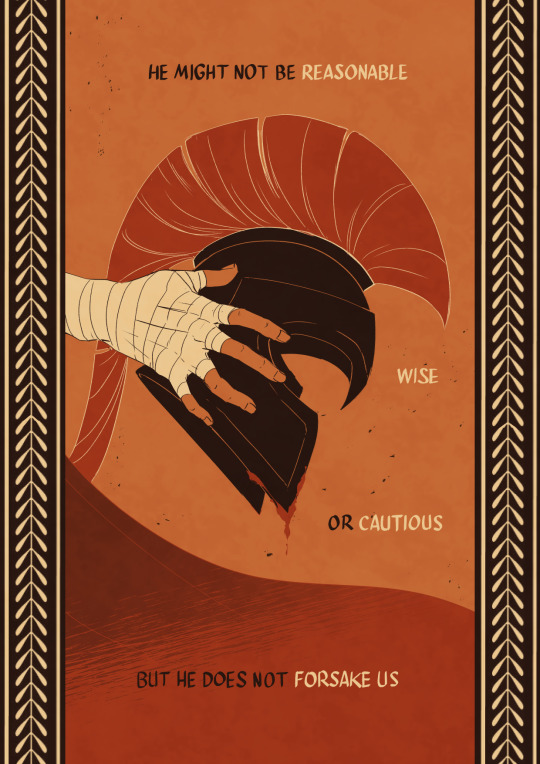

I turn to Ares.
Thanks to Tyler Miles Lockett who allowed me to draw inspiration from his ARES piece for page 2! Look at his etsy page it's SICK
⚔️ If you want to read some queer retelling of arturian legends have a look at my webtoon
69K notes
·
View notes
Text
The Athenian Calendar 🏛️🌿📅
There was no standard calendar in ancient greece, however the most written about and commonly used one by modern reconstructionists is the Athenian Calendar! This calendar can be easily incorporated into the Gregorian Calendar as well (in my opinion)
I would like to thank @hermesmystic for creating a beautiful lesson on our Hellenismos Online Temple discord server! It helped a lot with this post ♥
It’s a long one so brace yourself!
D A Y S 🌇
The days in the Athenian Calendar begin at sunset. This was important for being able to observe festivals or holy days, if they were to begin at midnight like it does for us, the Greeks would have had a much harder time practicing their religion.
The main Olympians have sacred days of the week which can be used if you would like to make small daily offerings. Weekdays have two gods and weekends have three. A week in review would be:
Monday: Artemis and Demeter 🏹🌾
Tuesday: Ares and Athena ⚔️📜
Wednesday: Hermes and Hephaestus 📬🛠️
Thursday: Zeus and Hera 🌩️💍
Friday: Dionysus and Aphrodite 🍇🕊️
Saturday: Hestia, Hades and Persephone 🕯️💀
Sunday: Apollo, Posedion and Amphitrite ☀️🌊
Obviously you don’t need to change your clock and begin living your life around this BUT it is useful to remember.
M O N T H S 🌑
The months are where it gets a little complicated! So we’ll begin with the way the months began and ended and that is with the new moon.
Most Athenian months will fall between two Gregorian months, and sometimes a Gregorian month can have two full moons.
A rule of thumb to remember with this is an Athenian month begins on the last (or only) new moon of a Gregorian month and ends on the first (or only) new moon in the next Gregorian month.
The Athenian Calendar also has seasons like the Gregorian calender, and these seasons have three months within them.
S u m m e r: 🌻🏄
Season Theme: Setting foundations and goals
Hekatombion (holy month of Zeus 🌩️) - Falls between July/August.
Theme: Planning and getting your life sorted
Festivals for this month are the:
Aphrodisia (6th), Kronia (12th), Synoikia (15-16th) and Panathenaia (28th)
Metageitnion (holy month of Demeter 🌾) - Falls between August/September
Theme: Securing foundations from the previous month
This month doesn’t have confirmed festivals but these are believed to fall under this month:
Metageitnios (Unknown), Herakles Emera (Unknown)
Voedromion (holy month of Hestia 🕯️) - Falls between September/October
Theme: Focus on spiritual/religious comfort
Festivals for this month are the:
Genesia (5th), Kharisteria (6th), Boidromia (7th), Eleusinian Mysteries (15th-21st)
The Eleusinian Mysteries was the most important festival in the Athenian year held in honour of Demeter and Persephone. What happened during this festival isn’t well known so it’s challenging for a modern Hellenic Polytheist but for the ancient Greeks acknowledging the festival was important, acknowledging meant to observe the festival, in the modern sense this can be doing a personal ritual.
A u t u m n / F a l l: 🍂🥧
Season Theme: Tackling hardships, the gods challenge
Pyanepsion (holy month of Ares ⚔️) - Falls between October/November
Theme: Time for tackling hardships
Festivals for this month are the:
Proerosia (5th), Puanepsia (6th), Oskhophoria (7th), Theseia (8th), Stenia (9th), Thesmophoria (11-13th), Khalkeia (30th)
Maimakterion (holy month of Artemis 🏹) - Falls between November/December
Theme: Time for taking care of yourself through hardship
Festivals for this month are the:
Maimakeria (unknown), Pompaia (20-end)
Poseideon (holy month of Poseidon 🌊) - Falls between December/January
Theme: A time to prove work ethic (or arete) to the gods
Festivals for this month are the:
Poseidea (8th), Rural Dionysia (last two weeks of the month), Haloa (26th)
W i n t e r: ❄️☃️
Season Theme: A time to recover and revise goals
Gamelion (holy month of Hera 💍) - Falls between January/February
Theme: Time to reconnect with the gods
Festivals for this month are the:
Lenaia (12-15), Gamelia (26)
Anthesterion (holy month of Haephestus 🛠️) - Falls between February/March
Theme: Time for ingenuity/finding creative solutions
Festivals for this month are the:
Anthesteria (11-13th), Diasia (23**/28th)*, Lesser Mysteries (unknown)
Elafevolion (holy month of Athena 📜) - Falls between March/April
Theme: Reflecting on potential weaknesses and improving
Festivals for this month are the:
Elapheblia (6th), Asklepieia (8**/9th)*, Greater Dionysia (9-13th), Pandia (14/17th**)*
S p r i n g: 🌷🐣
Season Theme: Strength and Hope!
Mounikhion (holy month of Aphrodite 🕊️) - Falls between April/May
Theme: Celebrate the progress you’ve made!
Festivals for this month are the:
Feast of Eros (4th), Mounikhia (6/16th**)*, Olympieia (19th)
Thargelion (holy month of Apollo ☀️) - Falls between May/June
Theme: Faith and Divination, working hard
Festivals for this month are the:
Thargelia (6-7th), Plunteria (Last week with the peak on 25th)
Skiroforion (holy month of Hermes 📬) - Falls between June/July
Theme: Making goals for the new year, devotion
Festivals for this month are the:
Arrhephoria (3rd), Skirophoria (12th), Dipolieia (14th)
[* means it can be observed on either day]
[** means that is the prefered date to observe it]
Each month has an 11 day transitionary period from one to the next called the Neos Minas, each day (except one) has an event that help to fully transition spiritually from the theme of one month to the next.
Day 1: Chthonia 1 - the 3rd day before the end of the old month 🧹
Day 2: Chthonia 2 - the 2nd day before the end of the old month 🧹
Day 3: Hekate’s Deipnon - last day of the old month 👻
Day 4: Noumenia - First day of the new month ✨
Day 5: Agathos Daimon - 2nd day of the new month 🎉
Day 6: Tritomenis - 3rd day of the new month / Athena’s birthday 📜
Day 7: Tetras - 4th day of the new month 💖
Day 8: Rest Day - 5th day of the new month 🥱
Day 9: Birth of Artemis - 6th day of the new month 🏹
Day 10: Birth of Apollo - 7th day of the new month ☀️
Day 11: Poseidonas - 8th day of the new month 😤
M o n t h 1 3 ?
Occasionally there will be two new moons in a Gregorian month, this was a dillema for the ancient Greeks as well and their solution was to add a 13th month! Mounikhion has to begin and Elafevolion has to end on the same day but there are two new moons… what do we do? Who do we honour?!
DIONYSUS TIME BAYBEEE 🍇🍇🍇🍇
Dionysus would be given a month whenever this issue would arise and it fit his theme perfectly, to come in and cause chaos! This month never had any festivals as it was so sparadic in length or time of year, routine went out the window!
In even more Dionysus fashion this month isn’t named after him! It’s called Duo Poseideon and has nothing to do with Poseidon’s month!
Y E A R S 🎉
Years in the Athenian calendar begins in the summer, giving the Greeks plenty of energy to honour and celebrate. The final day of the year was always to honour Athena and Zeus for blessings in the new year
To keep with the theme of four seasons, the years were also grouped into fours called Olympiads 4 years = 1 Olympiad. The way to write the year would go as such:
“Year 4 of the 704th Olympiad” Once the year is complete this summer it will become “Year 1 of the 705th Olympiad”
The years also come with their themes, they follow that of the seasons.
I hope this post was helpful! Sorry if I got anything wrong but I hope you can add some of this information to your worship and have fun with it! Don’t worry about trying to follow the calendar perfectly.
Gods bless xx ♥
2K notes
·
View notes
Text
ancient greek trans girl who is still painfully oblvious to her true gender: yeah man it was so weird, i stumbled upon artemis bathing in the woods and i thought oh great now im gonna get turned into a stag this sucks, but instead she let me go lol isn't that so weird? she even asked if i wanted to join up with her hunters haha which is like so weird because only girls are allowed to join right? so weird lmao
17K notes
·
View notes
Text
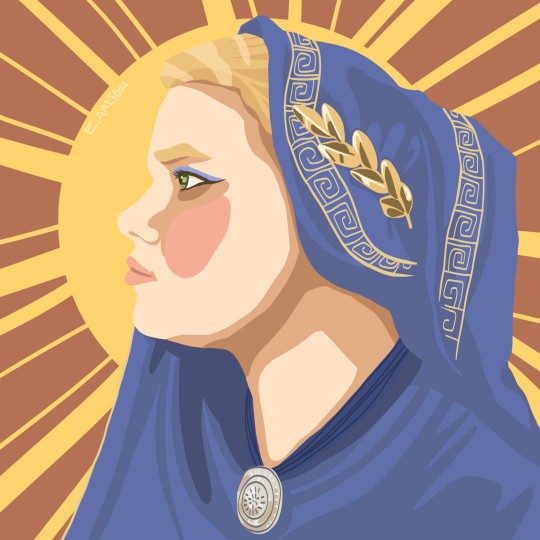
Made a new profile pic for myself. Just drew on a picture I had lol.
38 notes
·
View notes
Text
Hellenic Polytheism & Weddings - A Quick Overview
Alternate Title: How to honor the Gods in your weddings

Due to me getting married this year, I did some research on wedding traditions and rituals related to Hellenic Polytheism. It's important to know that they varied depending on location on time. So this is a very generalized overview:
General Information
Weddings were usually a legal affair between two families without any clergy/priest/priestess involved
Weddings were held over three days (depending on the wealth of the families, this could be significantly shorter)
Offerings were given throughout the three days
Day before the wedding: the bride spends time with her female relatives. Offerings to Hera, Aphrodite and Artemis are given. Offerings for Artemis can be childhood toys or locks of hair for example to symbolize the end of the brides childhood.
Wedding day: the day begins with a ritual bath for cleansing. The bride is escorted to the grooms house with a procession led by her mother, carrying a torch. Friends and family follow, singing and dancing. At the grooms house, his mother greets her with fruit and a cake to welcome her into the family. Other examples of wedding customs are showering the bride in coins & figs, the groom giving the bride a pomegranate, a basket of fruit & bread given to the couple by a young man, etc. Most of those customs are for good luck, prosperity & fertility. A feast is held at the grooms house.
The day after the wedding: the families gather together once more to give gifts to the couple
Wedding colours for the groom were traditionally red or white
The bride wore bright colors and a long veil covering her face

Important Gods and Goddesses
The "main" Gods & Goddesses presiding over marriage and weddings are Hera, Zeus and Aphrodite.
Other important Deitys that should/could be included in offerings are Artemis, Hestia, Eros, Pheitos, The Kharites, Eunomia, Harmonia, Hymenaios and Hebe.

How to include the Gods in Modern Day Weddings
Just some easy ideas inspired by other blogs (sources below this paragraph) and what I read.
Grooms wear red or white, brides wear a veil (doesn't have to cover the whole body)
Wear a laurel wreath
Wear flower crowns
Prepare your own vows & prayers
Read hymns & prayers during the ceremony or privately before/after the wedding
Have a dinner with your family and friends the evening before (maybe even at your fathers house if possible/wanted)
Choose sacred flowers of Gods you want to include in your wedding for bouquet & decorations
Have pictures/figures of the Theoi at the wedding
Have pictures/figures of sacred animals or objects related to Theoi at the wedding
Do the more "simple" traditions such as giving your partner a pomegranate, showering the spouse in coins, your friends and family giving you bread/fruit/etc.
Give offerings to Artemis, Hera, Aphrodite the night before the wedding
Take a bath the morning of your wedding (if possible time-wise)
Have a breakfast together with your family and friends the morning after the wedding
Give offerings the morning of your wedding to Hera, Aphrodite, Zeus (and whoever else you chose): the wedding day is usually super busy so quick & simple offerings are more than enough. You can always do something "bigger" before or after the wedding days (if you want to).
Include Hellenic-themed decorations

More Resources
List of ideas to honor the Gods on your wedding day by @honorthegods
List of ideas by pomegranateandivy
Hellenic Weddings: History and Modern Ritual
Dromena for the Celebration of Marriage
A Hellenic Greek Wedding based on the Dromena above
Last update: May 1st 2022
Dividers by @firefly-graphics
273 notes
·
View notes
Text
Blessed Theogamia to All!
May the divine marriage of Zeus and Hera, our King and Queen, serve as a joy to all. May you receive Their generosity in your own marriage, and may you and your spouse be blessed.
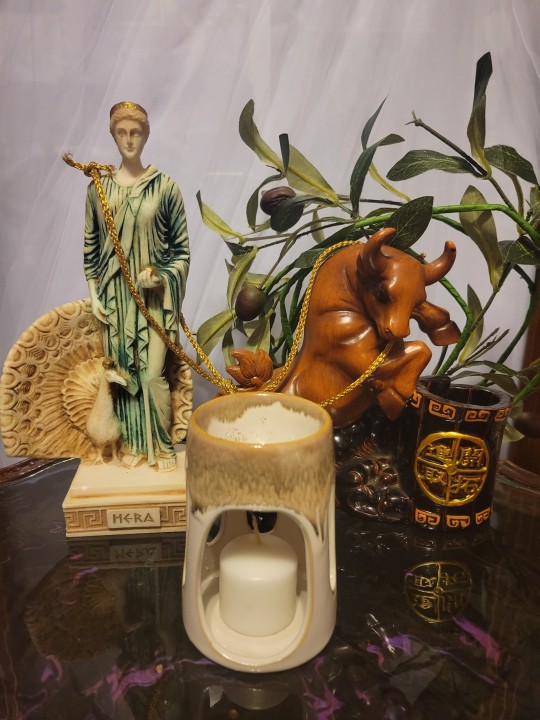

Orphic Hymn 14 - Hymn to Zeus
O Zeus much-honor'd, Zeus supremely great, to thee our holy rites we consecrate,
Our pray'rs and expiations, king divine, for all things round thy head exalted shine.
The earth is thine, and mountains swelling high, the sea profound, and all within the sky.
Kronion king, descending from above, magnanimous, commanding, sceptred Zeus;
All-parent, principle and end of all, whose pow'r almighty, shakes this earthly ball;
Ev'n Nature trembles at thy mighty nod, loud-sounding, arm'd with light'ning, thund'ring God.
Source of abundance, purifying king, O various-form'd from whom all natures spring;
Propitious hear my pray'r, give blameless health, with peace divine, and necessary wealth.
Orphic Hymn 15 - Hymn to Hera
O Royal Hera of majestic mien, aerial-form'd, divine, Zeus' blessed queen,
Thron'd in the bosom of cærulean air, the race of mortals is thy constant care.
The cooling gales thy pow'r alone inspires, which nourish life, which ev'ry life desires.
Mother of clouds and winds, from thee alone producing all things, mortal life is known:
All natures share thy temp'rament divine, and universal sway alone is thine.
With founding blasts of wind, the swelling sea and rolling rivers roar, when shook by thee.
Come, blessed Goddess, fam'd almighty queen, with aspect kind, rejoicing and serene.
269 notes
·
View notes
Text

Let your nuptial hymns, your nuptial songs, greet him and his wife! ‘Twas in the midst of such wedding festivities that the Moirai formerly united Olympian Hera to the King Zeus who governs the gods from the summit of his inaccessible throne. Oh! Hymen! oh! Hymenaios! Rosy Eros with the golden wings held the reins and guided the chariot; 'twas he, who presided over the union of Zeus and the fortunate Hera. Oh! Hymen! oh! Hymenaios!

Celebrating Theogamia (southern hemisphere) with some Aristophanes. Joyous Theogamia to you all!
177 notes
·
View notes
Text
you know it’d be cool if I actually gave a recipe for the Haloa cake I make, but I just always end up winging it so there’s no recipe to share really.
So ugh, here’s how I do it: I put a random amount of oat in a bowl, I heat up a random amount of honey and coconut oil (because that shit hardens when it’s cold) in a small pan until it’s liquid. Once it’s liquid, I pour that in the oats and stir.
I now have sticky oats. Add sugar to taste (or more liquified honey). Slap that shit in a mold and bake like 10 min max in the oven at a temperature that isn’t too low nor too high. Oats burn quickly so you want to be careful.
Let the thing cool down so it hardens and won’t break.
If you’re like me and want to make it dick-shaped, either mold it by hand or get yourself one of those silly dick molds. Mine is plastic (didn’t order it online, found it at my local sex shop) so I don’t put it in the oven. I just put the mixture in there beforehand and unmold the cake on the oven tray. Either way, it works.
Picture of the dick cake under the cut (from last year because I broke the testicle of this year’s cake and I am not happy)
Keep reading
29 notes
·
View notes
Text
Suggestions for this Haloa:
- First chant an hymn for Hestia and light a candle in her honour. The hearth is sacred, and around Her the Gods and mortals meet. I usually pour the first and last libations in Her name!
- Gather grain, fruits and bread, offer them to both Dionysos and Demeter. You may partake on the feast given, being an ouranic offering of this sort.
- If you have milk, wine and honey, it might be a great time to pour a libation in Their honour.
- Recite (or sing) their hymns before the fire. Reflect about your relationship with Them, thank Them for their blessings of fertility and harvest, pray about the things you may want to harvest in the future.
- Phallic imagery and erotic content was also very present as symbols of fertility. If appliable on your praxis, you may incorporate aspects of it on this Festival.
You may read more about Haloa here.
May Demeter and Dionysos bless us with a good harvest of the many good things we seed!
Eirene! (Peace!)
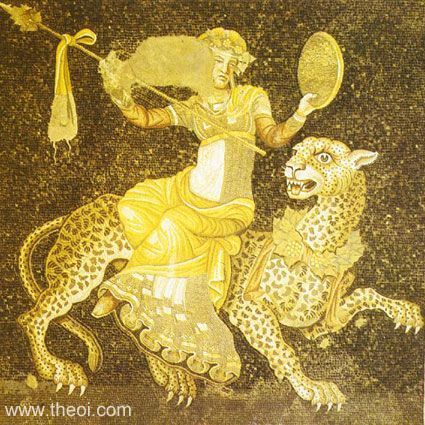
121 notes
·
View notes
Text
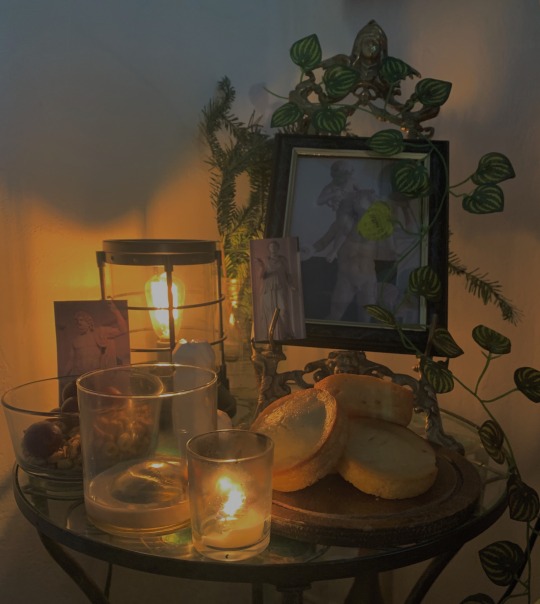

Kala Haloa! Praise Demeter, Dionysos, and Poseidon Phytalmios for their many blessings!
99 notes
·
View notes
Text
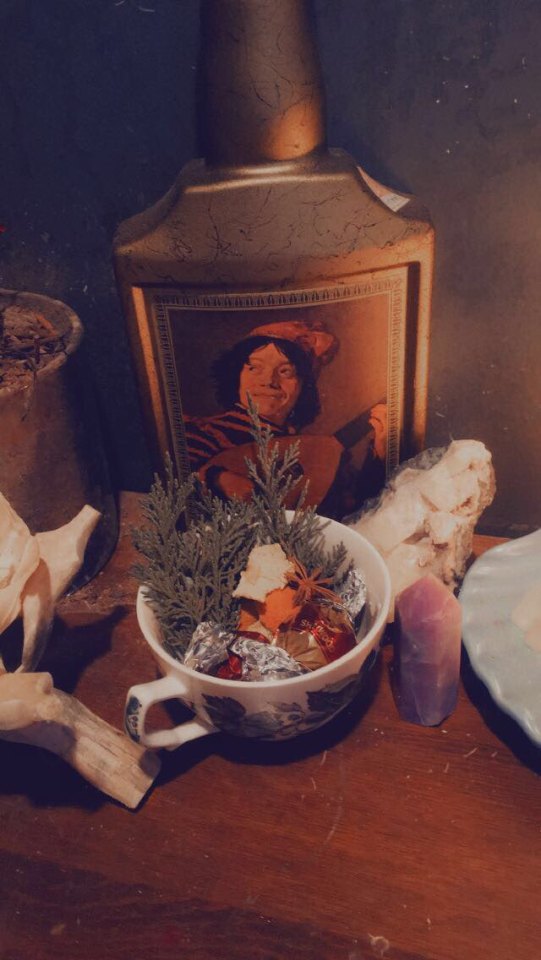
Happy New Year!
Here's a little offering for Dionysus on my altar of juniper from my tree outside, some dried orange peels, a star anise, and 2 truffle chocolates.
26 notes
·
View notes

